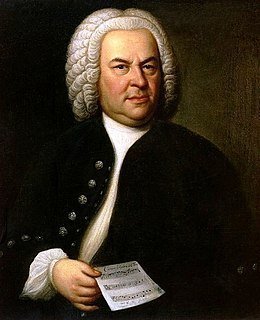When Bach plays, even God is listening! That was the saying among the lucky ones who had the privilege to hear Bach playing. Many decades later there was a composer who was listening still and listening very carefully. In this article we explore how Bach influenced Beethoven and his musical development and eventually his style.
Strangely enough in Beethoven’s time Bach (1685-1750) was not the famous composer, who he is in our time. Yes, he was well known and admired in his Leipzig hometown and region (Thuringia or Saxony), but not a sensation on the European continent. Partly, because he published little of his music. After his death a small army of devoted students started to copy his works (mainly keyboard) and distribute among their own pupils. The pattern repeated again and again until his works reached all important musical centers from Bonn to Vienna, from Zurich to Berlin.
Beethoven first met the name and the works, when he started his training with Neefe, who knew Bach’s works well and used the forty-eight preludes and fugues from the Well tempered Clavier, as the main teaching tool. In 1782 the Magazin der Musik describes Beethoven as “…a boy of eleven years and of most promising talent. He plays the clavier very skillfully and with power, reads at sight very well, and — to put it in a nutshell — he plays chiefly The Well-Tempered Clavier of Sebastian Bach, which Herr Neefe put into his hands. Whoever knows this collection of preludes and fugues in all the keys — which might almost be called the non plus ultra of our art — will know what this means.” By the time these works were considered difficult and having a boy mastering it had to be a real amazement!
The impact of Bach on the young composer is evident from his later correspondence. In a letter to Hofmeister (a publisher) in 1801 he writes “The fact that you purpose to publish the works of Sebastian Bach does good to my heart, which beats only for the lofty and magnificent art of this patriarch of harmony. … Set me down as a subscriber for the works of Johann Sebastian Bach, also Prince Lichnowsky.” In this same year to Breitkopf (another publisher) he calls Bach the immortal god of harmony. Typical of Beethoven, always ready to help, he also offered to publish a work for the benefit of Bach’s daughter who in those days lived in unworthy poverty.
Even a decade later he writes “I thank you heartily for the beautiful things of Sebastian Bach, I will keep and study them. If any more follow, do please let me have them also!”.
Many believe that the mastery of Beethoven’s key relations and contrasts is rooted in this Bach heritage who was an outstanding contrapuntal composer. There was a discussion between August Kanne (a contemporary composer and music critic) and Beethoven, whether a transposed key would change a composition or not. Kanne believed there is no difference. Beethoven argued that a key has inner significance, they are associated with moods and thus no music should be transposed. We know from other sources that he felt, for example, that D flat major has the feeling of solemnity or death.
Despite the different time they lived in, the different temperament and style they had, both men pursued similar paths. Both withdrew from public performances and turned inward for reflecting on their art. Both considered fugal writing the most elevated expression and used it often. Probably, Bach’s brightest musical achievement was the Mass in B minor, which in spirit greatly influenced the Missa Solemnis of Beethoven.
Often used musical evidences – apart from the above mentioned ones – for the influence of Bach are Bach’s Preludes and Fugues in C sharp minor and Beethoven’s Quartet in C sharp minor (Op.131); or Bach’s Fugue in E major, Book II and Beethoven’s Sonata for piano in E major (Op.109).






